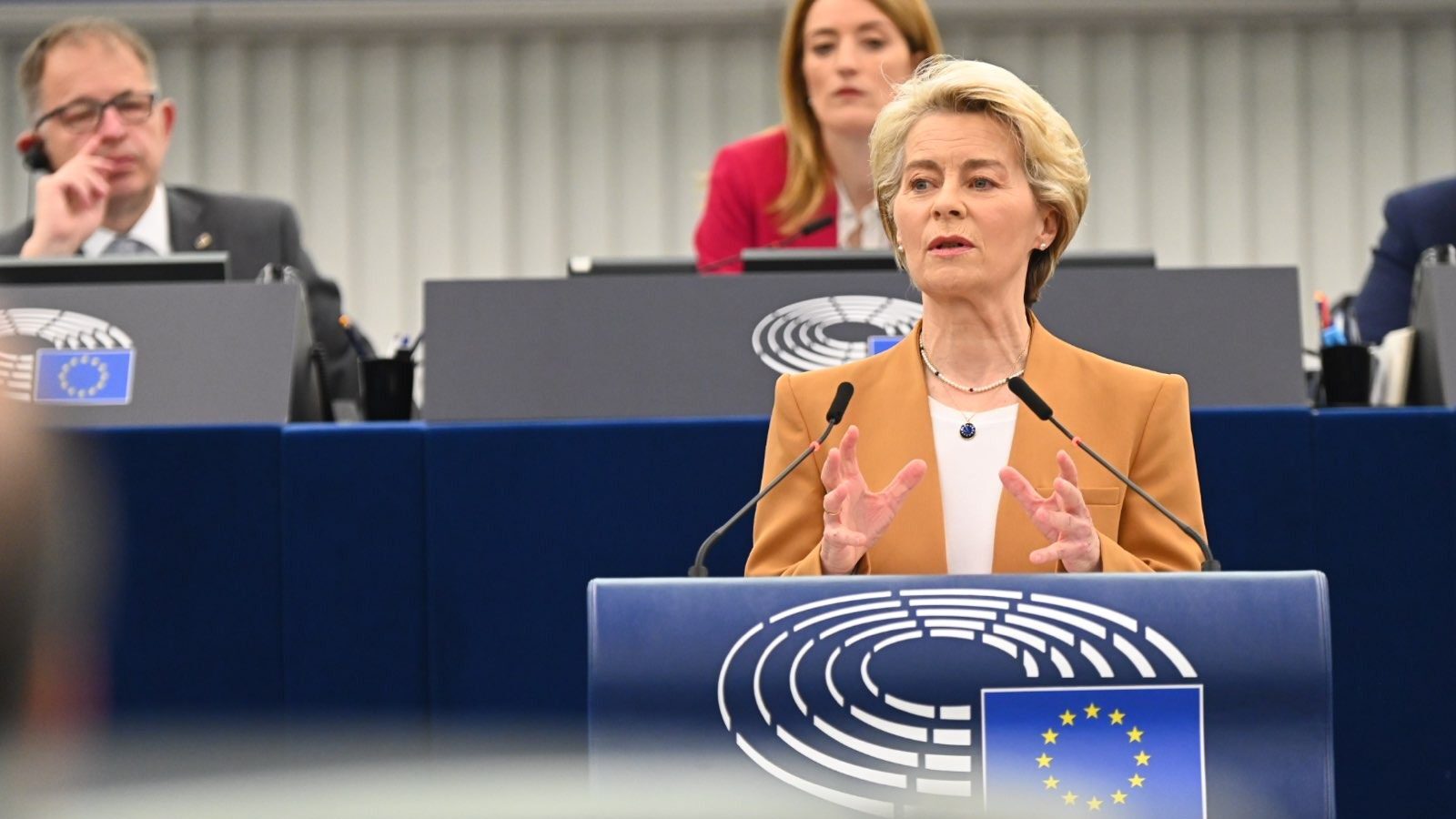
Ursula von der Leyen.
The Net-Zero Industry Act, proposed on March 16th, spells out the European Union’s solution to juggling emission goals while protecting European industry from foreign competition. The newly released details of protectionist measures for green industries come amid heightened trade tensions with the United States and China over future dominance of the sector.
The EU has recently been forced to reassess prior free trade policies in light of the war in Ukraine, protectionism from America, and concerns about overdependence on China. Many experts have warned that the EU green technology sector is entering an existential crisis due to global competition, with the EU now moving in to shore up European industry.
The Net-Zero Act establishes protections for green manufacturers, including enhanced investment, reduced regulations, and worker training programmes. Plans include the creation of ‘Net Zero Industry Academies’ and a European Hydrogen Bank to coordinate the production of hydrogen fuel. The EU aims to manufacture 40% of its green technology domestically by 2030.
Parliamentary leader for the ID group Marco Zanni branded attempts to mimic American policy as misguided, and countered the measures of the Act by calling upon the Commission to reduce the regulatory burden on businesses and resource dependency on third-party countries.
The economic think tank Bruegel raised the alarm that the Act represents a return to “crude protectionism and dirigisme” and would harm EU economic efficiency. Bruegel warned that the Act sends the wrong signals to the trading partners and sets a precedent that the principles of the EU’s single market could be overturned if an industry is designated “strategic.”
The Commission laid out targets for eight designated strategic technologies—fuel cells and photovoltaic panels are two such technologies—to be manufactured within the bloc. The objective is to steer Europe away from dependency on China, since Europe is a net importer of green technology. Free trade advocates have welcomed the lack of formal “buy European” provisions within the Act.
There is some ambiguity over whether the Act includes nuclear energy. Although small modular reactors are mentioned in the Act, an internal debate is currently ongoing within the EU on whether to classify nuclear as a green technology.
The Commission outlined the “strong geostrategic interests” in maintaining dominance of the green sector, since the market for zero-carbon technologies is expected to triple within seven years.
Clauses within the Act will force governments to take into account “security of supply” when buying non-EU goods, including the origin of key components. Under the terms of the Act, individual governments will assess their dependency on non-EU green technology similar to already existing domestic content requirements in America. Some economists are warning of potential conflict with the WTO over free-trade agreements.
The European green tech industry has been rattled by protectionist measures enacted by the Biden administration, with high-profile car manufacturers lured to America because of the Inflation Reduction Act (IRA) and billions of dollars in subsidies on offer. There are fresh fears this week that they may be joined by the American Intel technology company, also a computer chip manufacturer.
The Net-Zero Act forms part of the wider EU response to the global green tech race in the form of the Green Deal Industrial Plan launched by Commission President Ursula von der Leyen in January.
The Act will be debated at this week’s meeting of EU defence ministers in Brussels before heading to the EU Parliament and Council for further negotiations.
Separate from the Act, the Commission announced plans to safeguard the sourcing of raw materials within the EU with a new quota system for mining production.
A panel discussion on the impact of the EU’s legislative priorities, including the Green Deal, will take place in Brussels on March 22nd, at the Silversquare working space, 11-12:30, hosted by The European Conservative. The event, “Europe: A Path Forward?”, is open to the public but will require registration.
